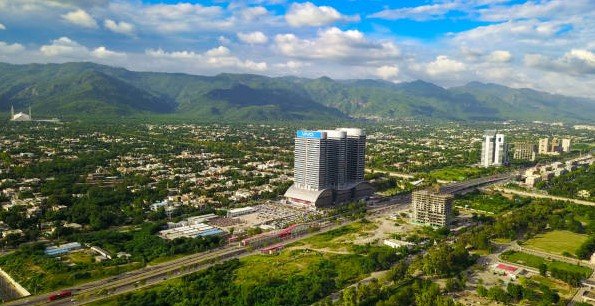A high level Saudi business delegation, led by Prince Mansour bin Mohammad Al Saud, touched down in Islamabad on October 7, 2025, to strengthen trade and investment links. This visit aims to seal deals worth billions and deepen economic bonds between Saudi Arabia and Pakistan, building on recent defense pacts and shared growth goals.
Arrival of the Delegation
The group arrived amid high expectations for fresh business opportunities. Prince Mansour, who chairs the Saudi Pakistan Joint Business Council, heads a team of key investors and officials eager to explore partnerships.
This marks a key step in ongoing efforts to boost ties. Officials greeted the visitors warmly, highlighting the brotherly relations between the two nations. The timing aligns with Saudi Vision 2030, which seeks to diversify the kingdom’s economy beyond oil.
Social media buzzed with positive reactions, as users shared hopes for job creation and economic uplift in Pakistan. The delegation’s schedule runs for several days, packed with high profile engagements.
Key Meetings and Engagements
Over the coming days, the Saudis will meet Pakistan’s top leaders, including the prime minister and finance minister. Talks will cover ways to ease trade barriers and foster joint ventures.

Senior government figures, chamber heads, and business leaders are on the agenda. These sessions focus on aligning strategies with both countries’ economic plans.
One highlight is discussions at the Special Investment Facilitation Council, where Saudis explored sectors like energy and tech. This follows a landmark defense agreement signed last month, paving the way for broader cooperation.
The visit builds on earlier trips, such as a May 2024 delegation that promised five billion dollars in investments. Now, with global markets shifting, both sides aim for quick wins.
Priority Sectors for Cooperation
Cooperation targets areas vital to growth. Energy, infrastructure, and agriculture top the list, with potential for tech and manufacturing deals.
Pakistan offers opportunities in its growing IT sector and natural resources. Saudis bring expertise in renewable energy and urban development.
Here are some key sectors under discussion:
- Energy: Joint projects in oil, gas, and renewables to meet rising demands.
- Agriculture: Tech transfers to boost Pakistan’s farming output and exports.
- Infrastructure: Investments in roads, ports, and smart cities.
- Technology: Partnerships in AI and digital services for mutual innovation.
These align with Vision 2030’s push for non oil revenues and Pakistan’s need for foreign capital.
Significance of the Visit
This trip underscores deep rooted ties, often called familial by leaders. It comes after a defense pact that boosted military collaboration, now extending to business.
Pakistan faces economic challenges like inflation and debt, making Saudi funds crucial. Experts see this as a chance to unlock billions in investments, potentially creating thousands of jobs.
Recent data shows bilateral trade hit over three billion dollars last year, with room to grow. The delegation’s arrival follows talks between Prime Minister Shehbaz Sharif and Crown Prince Mohammed bin Salman.
Public sentiment, from online forums to news chats, views this as a positive shift amid global uncertainties.
Analysts note similar visits to other nations, like Saudi investments in India and Egypt, showing a pattern of regional outreach.
Expected Outcomes and Deals
Participants expect to sign multiple agreements during the stay. Early reports suggest deals worth up to two billion dollars in business to business pacts.
These could cover mining, tourism, and health care, expanding beyond traditional areas.
| Sector | Potential Investment | Expected Impact |
|---|---|---|
| Energy | Up to 500 million dollars | Enhanced supply and jobs in power projects |
| Agriculture | Around 300 million dollars | Improved yields and food security |
| Infrastructure | Over 700 million dollars | Better connectivity and urban growth |
| Technology | 200 million dollars plus | Innovation hubs and skill development |
This table outlines projected deals based on ongoing talks and market trends.
If successful, these pacts could stabilize Pakistan’s economy and support Saudi diversification efforts.
Broader Economic Implications
Looking ahead, stronger ties could reshape regional trade. Pakistan gains access to Gulf markets, while Saudis tap into South Asia’s workforce.
Challenges remain, like regulatory hurdles and global inflation, but optimism runs high. This visit fits into a wave of Middle East Asia partnerships, driven by post pandemic recovery.
In the long run, it promises mutual benefits, from reduced unemployment to tech advancements. What do you think this means for future relations? Share your views in the comments and spread the word to keep the conversation going.
